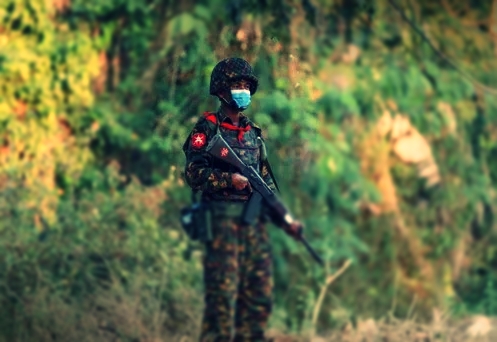The abstention by India and veto-wielding China and Russia is a textbook example of how realpolitik works at the UN when national interests and geopolitical priorities intrude….reports Arul Louis
When the UN Security Council adopted a resolution on Myanmar that set the world organisation’s current engagement with the crisis in that country, three nations abstained in a collision of regional realities and perceptions thousands of miles away.
They were India and China, which seldom see eye-to-eye on geopolitical issues, but share borders and problems with that country, and Russia.
The resolution last December demanded an end to violence and de-escalation of tensions, and urged the release of political prisoners including President Win Myint and State Counsellor Aung San Suu Kyi, dialogue and reconciliation, respect for human rights, and the restoration of democracy.
The abstention by India and veto-wielding China and Russia is a textbook example of how realpolitik works at the UN when national interests and geopolitical priorities intrude.
India was on the Security Council when the resolution was passed and Permanent Representative Ruchira Kamboj explained the abstention: “We believe that the complex situation in Myanmar calls for an approach of quiet and patient diplomacy. Any other course will not help in resolving the long-standing issues which have prevented enduring peace, stability, progress and democratic governance.”
More importantly, the Council virtually outsourced solving the crisis to the ASEAN, the 10-member group to which Myanmar belongs, endorsing the organisation’s efforts and calling for that country’s leaders to fulfil their commitment to the bloc’s plan.
That was the only resolution that the Council has adopted on Myanmar in the six years since the Rohingya crisis began because of the threats of veto by China and Russia and it even avoided any condemnations.
In contrast, the General Assembly took a stronger stand passing a resolution a week earlier that “strongly condemned” the violations of human rights of “Rohingya Muslims” and other minorities.

The 15-page-long Assembly resolution with 30 clauses that went into detail about the situation in Myanmar was the third it has passed since 2020, but unlike the Council, the Assembly has no enforcement powers.
The only concrete actions it has taken under the limitations are to request Secretary-General Antonio Guterres to give reports on the situation in Myanmar and encourage the work of his Special Envoy for Myanmar.
The post of the special envoy was created by the Assembly in 2017, and the second person to hold the position, Noeleen Heyzer of Singapore, left in June and has not yet been replaced – another indication of the constraints the UN faces.
In the latest action, the Council Under the US presidency in August came up with a joint statement from which China and Russia dissented.
Lacking the power of a resolution, the statement “strongly condemned” the killing of civilians and the air strikes, took up the cause of the Rohingyas, and called for the restoration of their rights and creating conditions for their voluntary return home.
But it cannot, for fear of vetoes, take action to compel the junta to follow its directions.
The crisis began in August 2017 after a terrorist outfit, Arakan Rohingya Salvation Army (ARSA), attacked security outposts and also killed civilians, including Hindus, leading to a counteroffensive of disproportionate dimensions by the Myanmar military, the Tatmadaw, killing hundreds of Rohingyas and carrying out widespread human rights abuses.
That led to an exodus of nearly 1 million Rohingyas, most of them fleeing to Bangladesh.
Adding another layer to the crisis, the military staged a coup in February 2021 arresting Aung San Suu Kyi and government leaders whose party had won the elections the previous year.
The UN has not recognised the military junta and the permanent representative appointed by the civilian government before the coup, Kyaw Moe Tun, continues to represent Myanmar with the endorsement of the General Assembly’s credentials committee.
From Myanmar’s seat in the Assembly chamber, he condemns the military government back home.
One Myanmar citizen was convicted in New York in July of plotting to attack him and another had admitted in 2021 before a federal court his involvement in the plot.
While the UN is unable to take political action on the Myanmar crisis, it is doing what it does best: humanitarian assistance and relief work.
The UN Refugee Agency (UNHCR) and Unicef are at the forefront of relief work for Rohingya refugees.
The UNHCR has budgeted $275 million for relief for the Rohingya in Bangladesh this year.
In August, Martin Griffiths, the under-secretary-general for Humanitarian Affairs, after a visit to Myanmar appealed in August for better humanitarian access for relief in that country and more aid for the people of Myanmar.
“Successive crises in Myanmar have left one-third of the population in need of humanitarian aid” and “they expect more and better from their leaders and from the international community.”
ALSO READ: US ‘Hopeful, But Not Optimistic’ About China Relations













